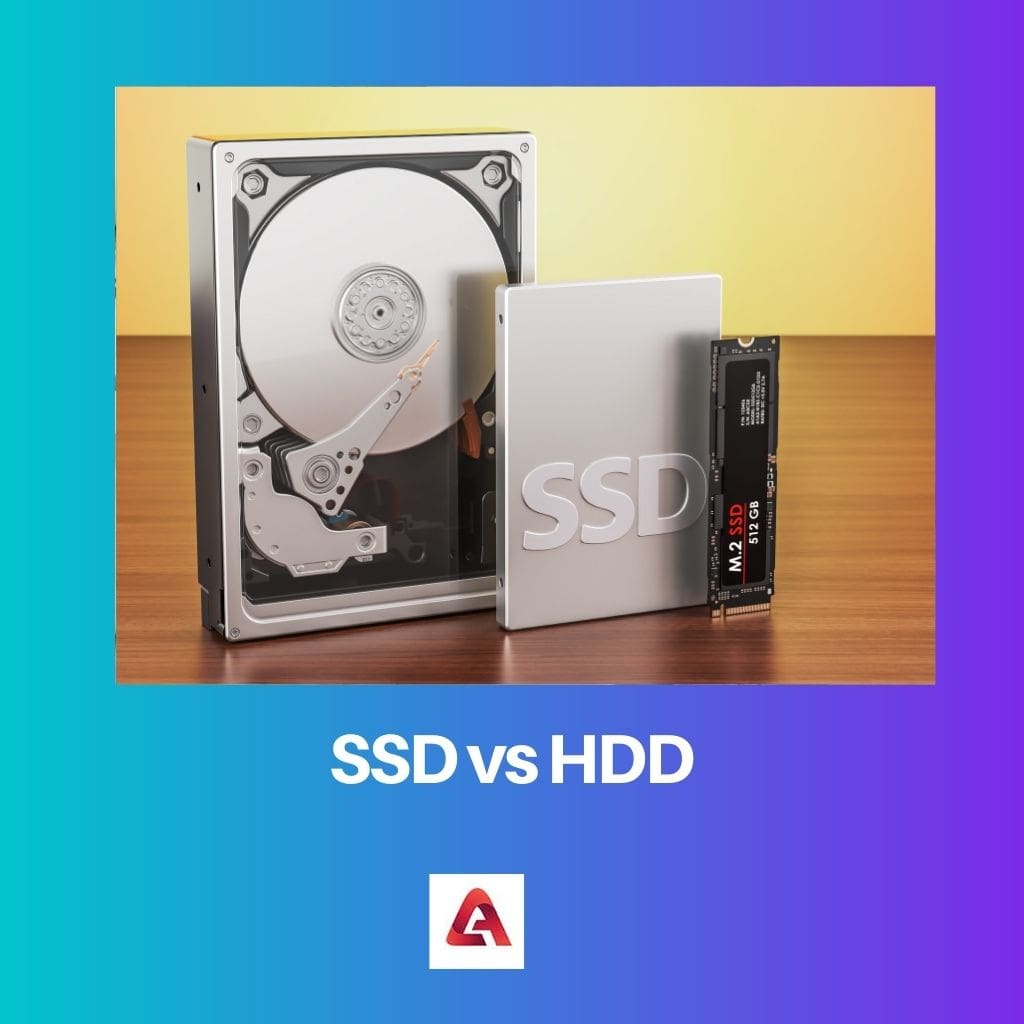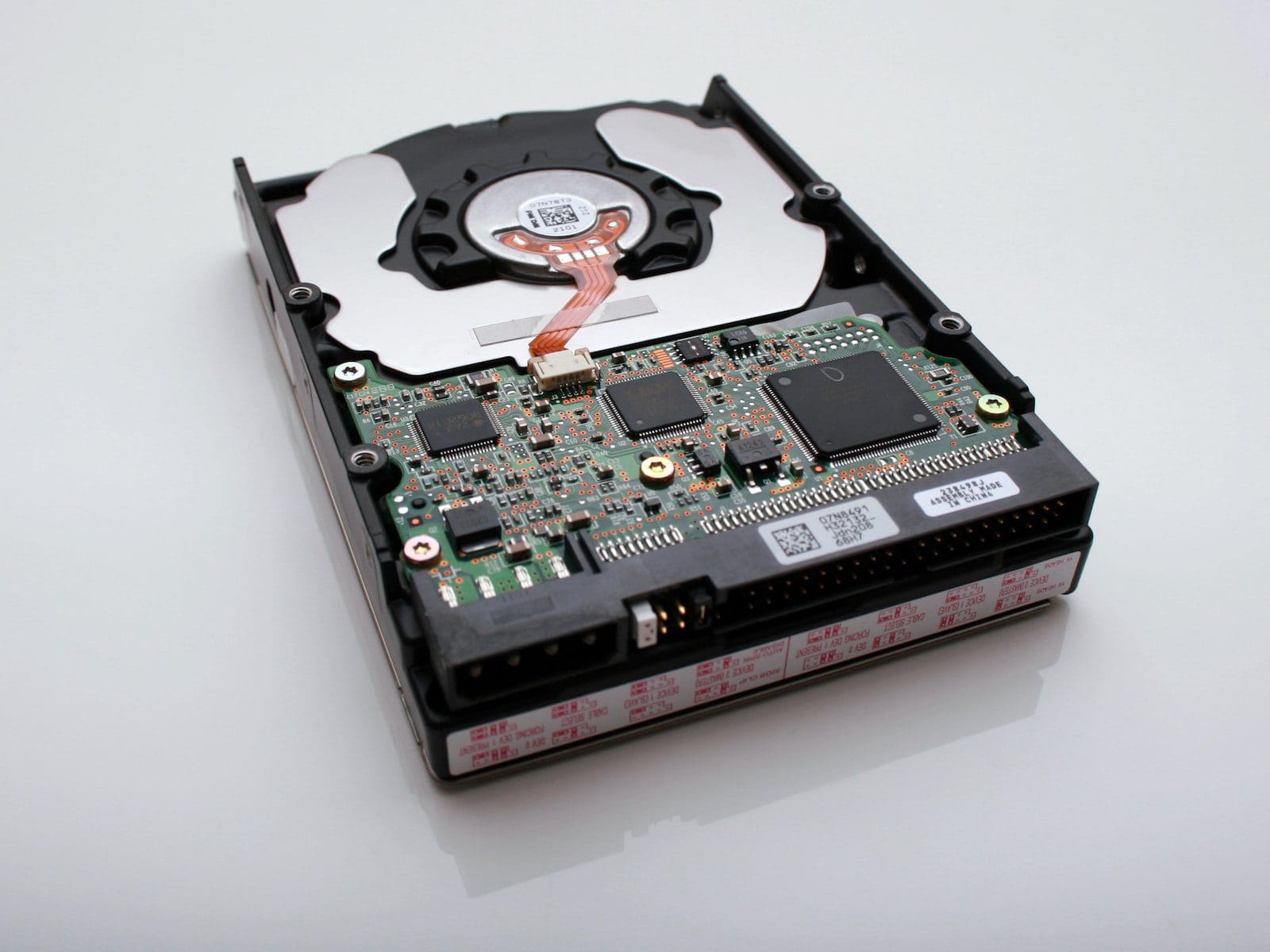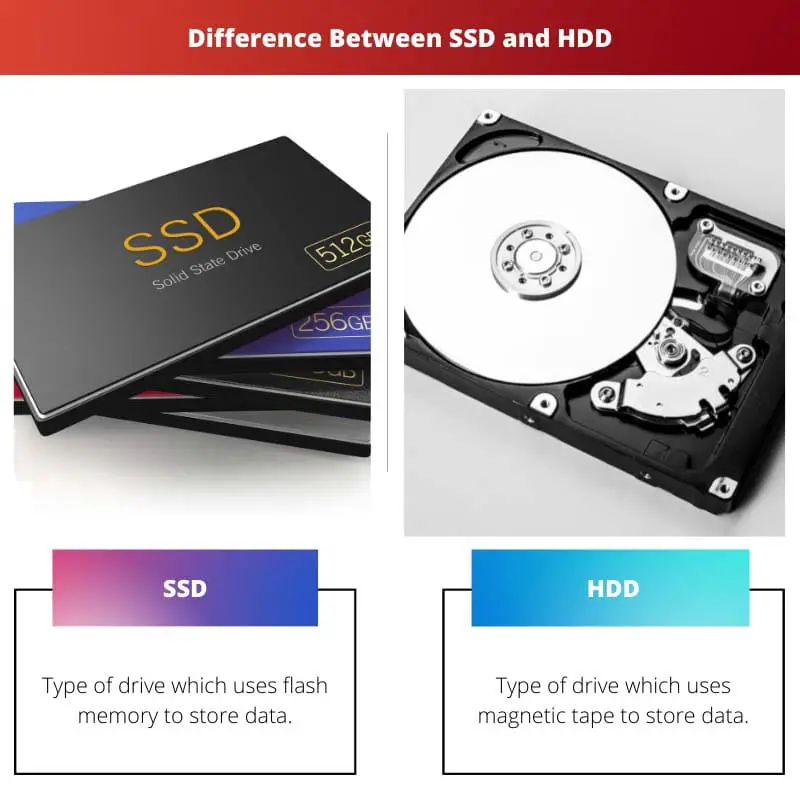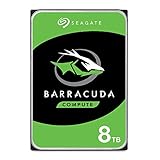SSDs (Solid State Drives) are faster and more durable than HDDs (Hard Disk Drives) due to their use of flash memory technology, resulting in quicker data access times and improved overall system responsiveness. However, HDDs offer larger storage capacities at a lower cost per gigabyte, making them a cost-effective choice for storing large amounts of data.
Key Takeaways
- Solid-state drives (SSDs) use NAND-based flash memory for data storage, providing faster read and write speeds, increased durability, and reduced energy consumption.
- Hard disk drives (HDDs) are storage devices that use magnetic disks to store data, featuring a mechanical arm to read and write data. This results in slower performance, higher energy consumption, and increased vulnerability to physical damage.
- The key difference between SSDs and HDDs lies in their data storage technology, with SSDs using NAND-based flash memory for faster performance and increased durability. At the same time, HDDs rely on magnetic disks and mechanical components, resulting in slower speeds and greater susceptibility to damage.
SSD vs HDD
The difference between SSD and HDD is that SSD stores data in flash memory, enabling quick loading and processing, whereas HDD stores data in moving parts, which makes running and processing operations slow.

However, the above is not the only difference. A comparison between both the terms on specific parameters can shed light on subtle aspects:
Comparison Table
| Feature | SSD | HDD |
|---|---|---|
| Technology | Solid-state, uses Flash memory chips | Mechanical, uses rotating platters and magnetic heads |
| Speed | Significantly faster, especially for boot times, application loading, and file access | Slower, with noticeable delays in response times |
| Durability | More resistant to shock and vibration, no moving parts | Less durable, susceptible to damage from physical impact |
| Noise | Silent operation | Creates audible noise from spinning platters and head movement |
| Power consumption | Generally lower power consumption | Slightly higher power consumption |
| Price | More expensive per gigabyte | More affordable per gigabyte |
| Capacity | Limited capacity compared to HDDs | Higher capacities available, but still lagging behind HDDs |
| Data retention | Data retention can degrade over time even when powered off | Data retention is reliable long-term |
| Ideal for | Operating systems, applications, gaming, performance-critical tasks | Secondary storage, data archives, media files |
What is SSD?
Solid State Drive (SSD) is a data storage device that has gained widespread popularity for its superior performance and reliability compared to traditional Hard Disk Drives (HDDs). Unlike HDDs, which use spinning disks and magnetic storage to read and write data, SSDs rely on NAND-based flash memory. This technology allows for faster data access, lower power consumption, and increased durability, making SSDs essential in modern computing systems.
Components and Architecture
The core components of an SSD include NAND flash memory chips, a controller, and a DRAM cache. The NAND flash memory is where data is stored in a non-volatile form, meaning the data persists even when the power is turned off. The controller manages data storage, retrieval, and wear leveling to ensure even usage across the memory cells. Additionally, a DRAM cache serves as a temporary storage buffer, facilitating quicker access to frequently used data.
Advantages of SSDs
- Speed: SSDs offer significantly faster data transfer speeds compared to HDDs. This results in quicker boot times, faster application loading, and improved system responsiveness.
- Durability: Since SSDs lack moving parts, they are more resistant to physical shock and mechanical failures, enhancing their durability and reliability.
- Energy Efficiency: SSDs consume less power than HDDs, making them more energy-efficient and suitable for laptops and other portable devices.
- Silent Operation: The absence of spinning disks in SSDs contributes to silent operation, eliminating the noise generated by moving parts in traditional HDDs.
Applications
SSDs are used in various computing devices, from personal computers and laptops to servers and data centers. Their speed and reliability make them ideal for tasks that demand quick access to large amounts of data, such as gaming, video editing, and database management. Additionally, SSDs are employed in embedded systems, automotive electronics, and other applications where robust, high-performance storage is crucial.
Challenges and Considerations
While SSDs offer numerous benefits, they also face challenges such as limited write endurance, where each memory cell has a finite number of write cycles. However, advancements in technology, including the development of multi-level cell (MLC) and triple-level cell (TLC) NAND flash and wear leveling algorithms, have addressed some of these concerns.

What is HDD?
A Hard Disk Drive (HDD) is a non-volatile data storage device used in computers and electronic devices to store and retrieve digital information. It is a crucial component of a computer’s storage system, providing long-term data retention even when the power is turned off. HDDs have been a standard storage solution for decades. While newer technologies like Solid State Drives (SSDs) have gained popularity, HDDs continue to be widely used due to their affordability and high storage capacity.
Components and Structure
An HDD comprises several key components, including platters, read/write heads, actuator arms, and a spindle motor. The platters, made of aluminum or glass, are coated with a thin layer of magnetic material where data is stored. The read/write heads, mounted on actuator arms, move across the spinning platters to read or write data. A spindle motor rotates the platters at high speeds, measured in revolutions per minute (RPM), providing the necessary movement for data access.
Data Storage and Access
Data is stored on the HDD as magnetic patterns on the platter’s surface. The read/write heads magnetically alter the patterns during writing and detect these changes during reading. The data is organized into sectors, tracks, and cylinders, and the operating system uses a file system to manage the storage space and enable efficient retrieval.
Advantages and Limitations
One of the primary advantages of HDDs is their cost-effectiveness, especially for larger storage capacities. They have been used extensively in personal computers, servers, and data centers for bulk storage. However, HDDs are mechanical devices with moving parts, making them susceptible to wear and tear over time. Additionally, compared to SSDs, HDDs have slower read and write speeds, affecting overall system performance.
Applications
HDDs find applications in various computing devices, including desktop computers, laptops, servers, and external storage solutions. They are suitable for tasks where cost-per-gigabyte and high storage capacity are essential, such as archival storage, large-scale data centers, and media libraries.
Evolution and Future Trends
Over the years, HDD technology has evolved with improved storage density, speed, and reliability. While SSDs are increasingly popular for their speed and durability, HDDs continue to play a crucial role in the storage landscape, particularly for applications that prioritize cost-effective, high-capacity storage. Technological advances, including the development of hybrid storage solutions combining HDDs and SSDs, showcase ongoing efforts to address performance limitations while maintaining the cost advantages of traditional hard drives.

Main Differences Between SSD and HDD
- Technology:
- HDD: Hard Disk Drives use magnetic storage to store data on spinning disks (platters). Data is read and written using a mechanical arm with a read/write head.
- SSD: Solid State Drives use NAND-based flash memory to store data. There are no moving parts; data is stored in memory chips.
- Speed:
- HDD: HDDs are slower than SSDs. The speed is affected by the physical movement of the read/write head and the rotation of the disk.
- SSD: SSDs are significantly faster than HDDs because they have no moving parts, allowing for near-instantaneous data access.
- Durability and Reliability:
- HDD: HDDs are more susceptible to physical damage due to their mechanical components. The moving parts make them more prone to failure in drops or shocks.
- SSD: SSDs are more durable as they have no moving parts. They can withstand shocks and vibrations better than HDDs.
- Size and Weight:
- HDD: HDDs are larger and heavier due to the need for spinning disks and mechanical components.
- SSD: SSDs are smaller and lighter since they do not require moving parts.
- Noise:
- HDD: HDDs produce audible noise due to the spinning of the disks and the movement of the read/write head.
- SSD: SSDs are silent because they have no moving parts.
- Power Consumption:
- HDD: HDDs consume more power because of the need for the motor to spin the disks and move the read/write head.
- SSD: SSDs are more energy-efficient as they have no moving parts and use less power during operation.
- Cost:
- HDD: HDDs are less expensive per unit of storage than SSDs.
- SSD: SSDs are more expensive but have become more affordable over time. The price difference has narrowed as SSD technology has advanced.
- Capacity:
- HDD: HDDs can offer larger storage capacities at a lower cost per gigabyte.
- SSD: While SSDs are available in large capacities, they tend to be more expensive for higher capacities than HDDs.
- Performance:
- HDD: HDD performance is affected by seek time and rotational latency, which can result in slower data access times.
- SSD: SSDs have faster data access, resulting in quicker boot times, faster file transfers, and improved overall system responsiveness.

- https://aapt.scitation.org/doi/abs/10.1119/1.19083
- https://journals.aps.org/prl/abstract/10.1103/PhysRevLett.74.3600





The article effectively highlights the potential applications of SSDs and HDDs, shedding light on the diverse scenarios where these storage technologies can be utilized for optimal outcomes. It broadens the perspective on storage solutions.
I particularly appreciate the emphasis on real-world applications, illustrating the practical relevance of SSDs and HDDs in various domains of computing and electronic systems.
Absolutely. The delineation of SSD applications in gaming, video editing, and database management, and the role of HDDs in secondary storage and data archives is insightful.
This article provides a comprehensive comparison of SSDs and HDDs, highlighting the advantages and limitations of each storage technology. The detailed information about the components and architecture of SSDs and the applications of HDDs makes it easier for readers to understand the differences between the two.
I totally agree. The in-depth analysis helps in making an informed decision regarding the choice of storage technology based on individual needs and use cases.
The coverage of SSD architecture and the advantages it offers in terms of speed, durability, and energy efficiency is quite comprehensive. It eliminates any ambiguity regarding the technical aspects of SSDs.
Certainly. The breakdown of SSD components and their functionalities enhances the reader’s comprehension of the technology, enabling a more informed decision-making process.
The section detailing the components and architecture of SSDs is informative and elucidates the underlying technology in a lucid manner. It provides valuable insights into the internal workings of SSDs.
I concur. The elucidation of SSD architecture makes the technical aspects more accessible, fostering a deeper understanding of the storage technology.
Absolutely. The detailed explanation of NAND flash memory, controllers, and DRAM cache enhances the reader’s grasp of SSD composition and functionality.
While SSDs offer faster performance and higher durability, HDDs continue to be relevant for specific use cases that require large storage capacities at a lower cost. The article effectively presents the distinctive features of both storage technologies without bias.
Indeed, the article maintains objectivity in its comparison, acknowledging the importance of HDDs in scenarios where cost-effective storage for massive data volumes is paramount.
I appreciate the balanced approach taken to discuss the strengths and weaknesses of SSDs and HDDs, catering to the diverse needs of users with varying storage requirements.
The article effectively addresses the challenges faced by SSDs, such as limited write endurance, while also highlighting the technological advancements that mitigate these concerns. It presents a holistic view of the storage technologies.
Indeed, the coverage of challenges and advancements adds depth to the comparison, providing a nuanced understanding of the evolving landscape of SSD technology.
The article adeptly elucidates the advantages of SSDs in terms of speed, durability, and energy efficiency, providing a compelling rationale for their suitability in modern computing systems.
Indeed, the article effectively underscores the strengths of SSDs, positioning them as pivotal components in high-performance computing environments.
The emphasis on SSD benefits and their relevance in contemporary computing reinforces the significance of these storage devices in driving technological innovation.
The technical details and performance analysis of SSDs and HDDs provided in the article are enlightening and serve as an excellent resource for understanding the technological disparities and implications of storage choices.
The comparison table provides a clear and concise overview of the key differentiators between SSD and HDD. It simplifies the complex technical details and makes it easier for the readers to comprehend the fundamental distinctions in terms of speed, durability, and price.
The comparison table indeed serves as a valuable reference point for decision-making, especially when considering the trade-offs between speed, durability, and cost.
Absolutely. It’s beneficial for consumers to have a structured framework to evaluate their requirements and weigh the trade-offs between the two storage options.
The comprehensive comparison between SSDs and HDDs is commendable, offering valuable insights into the strengths and limitations of each storage technology. It equips readers with the knowledge to make well-informed decisions.
Absolutely. The article serves as a robust guide for individuals seeking a deeper understanding of storage technologies and their implications for diverse computing requirements.
The article’s comprehensive analysis of SSDs and HDDs enriches the reader’s perspective on storage solutions, facilitating informed choices aligned with specific computing needs.